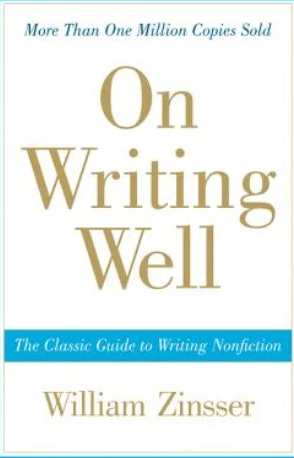The Profane Science Guide to Friendly Science Writing
Conventions I use as a science writer.
My goal with my writing to achieve a friendly, natural sounding voice. This is how I would talk if I were in a relaxed conversation with a friend. This is also helpful for podcasting, since the result is is natural. It isn’t easy to achieve, but I think it should be the goal of writers wo wish to reach a large audience.
Every genre of the written word has its own conventions, but after my time as an student in college, I did not write in a professional capacity that allowed for regular editing. Instead, my long-form projects have been done in isolation. So, when an editor has looked at my manuscript, it has become a crash-course in how to write. Or, at least, a crash course in choosing how to consistently express myself.
The conventions that I employ are solutions to the problem of talking about sophisticated ideas in a relaxing but technically accurate context. Hopefully, you find them useful in your own writing.
When someone discovered something in the past.
When someone believed, discovered, or wrote about something in the past, this is best in the past tense.
Ernst Mach believed that “all that exists are sensations.”
That is Mach’s opinion, in the past, and his act of writing is also in the past, and he is now dead, so he isn’t believing or writing anything, anymore.
In academia, you might say “Mach believes that…” which is in the present tense. But this is the “academic present,” a parallel dimension in which thinkers from history are all assembled on the steps of a kind of School of Athens in the clouds and speak to each other in the present tense. That is unfair, because Mach can no longer reply to other speakers. Although I bet his beard would look great in a Raphael painting.
You may also notice that the subject of Mach’s quote is in the present tense. This is for two reasons: First, Mach wrote this statement in the present tense, to begin with, so quoting it accurately requires this. Also, he is talking about something that exists today and would still be true today, if it is true at all.
When you are talking about a scientific fact generally known to be true.
I use the present tense:
A hydrogen atom consists of an electron orbiting one proton.
I like to use the present tense for scientific facts generally known to be true by the scientific community, and still true today. The first time someone discovered the fact, only the act of discovering is in the past tense, but the fact is present tense.
Some guy discovered that the hydrogen atom consists of an electron orbiting one proton.
When you are talking about a scientific fact NOT generally known to be true.
In these scenarios I do the following:
“A hydrino atom was proposed by Mills to consist of an electron more tightly bound to the proton.”
The discovery is in the past tense, but we use “proposed” instead of “discovered” and the implication is that the proposal has not yet been fully accepted. But the fact remains in the present tense.
It becomes harder to stay in the past tense if you are describing a complex process but need to maintain a natural present tense. I invented a solution to this, and I call it the “scientific hypothetical present.” Consider this:
“The hydrino atom was proposed by Mills to consist of an electron more tightly bound to the proton. When the hydrino atom meets another species capable of serving as a catalyst, it would undergo a resonant exchange of energy that would allow it it to transition to a more tightly bound state.
The implication here is that, if any of this is true, it would be true in this way. Note that the “When the hydrino atom…” could have been written as “Were the hydrino atom to…” but I didn’t want to speculate on the possibility of this process happening, I wanted to commit to it and explain what happens, at least in theory.
Second Person: A fun lexical style that invites the reader into the conversation.
We often find it difficult to avoid occasionally slipping into the second person. We, as readers, like to be involved in the story or feel that we are part of the conversation. And in some scientific explanations, it is tiring to constantly refer to what “scientists” believe, although they are the ones doing most of the believing.
There is a huge discrepancy between the number of neutrinos we detect from the Sun, and the number we predict should be emitted by fusion in the Sun’s core.
Although few of us are experts in solar neutrino detection, it is often understood that the “we” we are talking about here are the astronomers and astrophysicists concerned with this problem. It can be abused, however. It is often appropriate to discuss what astrophysicists are doing, and give them some credit.
Sometimes, the “we” is more about human civilization as a whole, or on Earth, as in this context:
We find ourselves on a small rocky planet orbiting a yellow dwarf star about 14 billion years after the start of the universe’s expansion.
Another good use of “we” is when talking about human psychology. I refer to this regularly, as a major theme of my book is about scientific change. We are all at fault for our human nature.
Major discoveries are by nature disruptive; the more so, the more reluctantly we accept them.
Replacing the above “we” with “the human brain” seems a little aloof, although I’m sure many lectures have been given on the frailties of the human brain by those who have obviously transcended it. (Or have they?)
Significant words
Some words need to be defined, and I try to call these words out with quotes, but there are a few different ways to do so. You will want to pick a convention early and stick to it - unlike me, as I changed my convention from the 2016 edition to my 2025 edition. Here is how I introduce a new term:
It looks like it might be a star, but it isn’t—it is a quasi-stellar object, or “quasar.”
In my 2016 edition I used italics, but now I think that this is better reserved for emphasis, so I use quotes for definitions.
Punctuation
Be sure you understand the different uses of the comma, the semicolon, and the long hyphen. Semicolons are an art form; they can create a beautiful string of phrases that seem connected by dance. The long hyphen I adopted early and it became a workhorse to create a sudden break in the text—it just works. Especially when dealing with definitions, which occur frequently in technical text. However, you’ll have to dig up the long hyphen from the character map because it doesn’t appear on the keyboard, although Microsoft Word will often autocorrect it for you.
Ridiculing words
Sometimes you want to refer to a word that you either think is silly or incorrect. For this purpose I reserve single quotes (or “scare quotes”).
As described by Einstein’s Special Relativity Theory, no matter how much you accelerate an object (for our purposes, a spacecraft traveling between the stars) it can never reach the speed of light relative to an object at ‘rest’ (for our purposes, a Mission Control back on Earth.)
Shortly thereafter, I explain why I am using scare quotes:
To speak of any frame at ‘rest’ is a misnomer. This is why I am using scare quotes. According to Special Relativity, all frames of reference are equally legitimate, and none of them are truly at rest, as there is no “absolute rest frame” in the universe. There are only “observers” in different frames of reference.
Notice that I needed to give specific definitions to two other words, in the process of explaining why I was using scare quotes. Here is another case where I have a definition and immediately ridicule the word, because I think it is stupid:
As to the phenomenon causing the expansion of the universe? Astronomers called it “dark energy.” ‘Dark’ because, well, it was mysterious.
Resources
William Zinsser’s On Writing Well is the classic guide to writing non-fiction that should be on every writer’s shelf. The lesson I most distinctly remember is to make every word do useful work; edit out the extraneous. It is probably the most formative influence on me as a writer.
Thanks for reading!




If only this was the standard
I appreciate the tips.